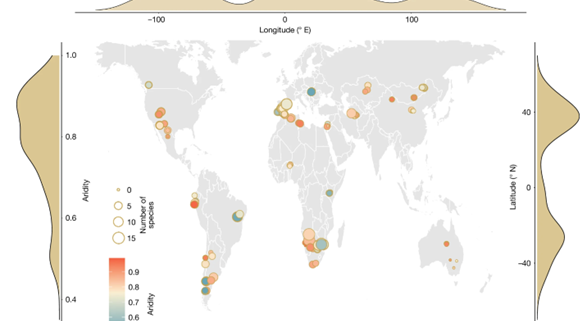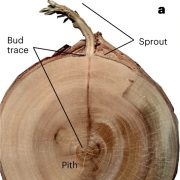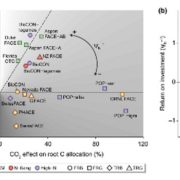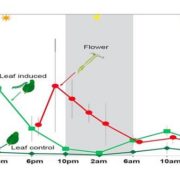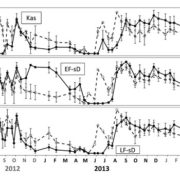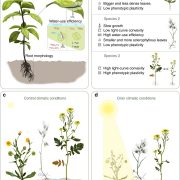Unforeseen plant diversity in global dryland
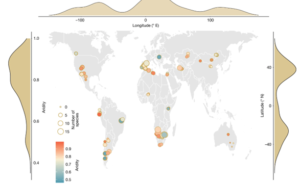 Earth’s terrestrial ecosystems harbor remarkable plant diversity. Some of this diversity can be quantified as functional traits, which provide a measure for diversity in different environments. In this new work, Gross et al. used a functional trait analysis to examine how plants respond to increasing aridity and animal grazing in global drylands, which are highly vulnerable to drivers of global change. The study analyzed 133,769 traits from 301 perennial plants across 98 sites in 25 countries. The findings break the widely accepted belief that extreme climatic conditions lead to a decline in the diversity of plant traits. On the contrary, it suggests that plants in arid regions use a wide variety of adaptation strategies, and this diversity increases with the degree of aridity. The authors describe this response to aridity as the “plant loneliness syndrome”. Heavily grazed drylands also correspond to greater diversity in traits. The findings emphasize that factors like soil fertility and plant cover contribute to trait diversity in challenging environments. This study underscores the significance of drylands as a global reservoir of plant diversity and shows how plants can adapt to increasing environmental pressures and climate change through diverse strategies. (Summary by Maneesh Lingwan @LingwanManeesh) Nature 10.1038/s41586-024-07731-3
Earth’s terrestrial ecosystems harbor remarkable plant diversity. Some of this diversity can be quantified as functional traits, which provide a measure for diversity in different environments. In this new work, Gross et al. used a functional trait analysis to examine how plants respond to increasing aridity and animal grazing in global drylands, which are highly vulnerable to drivers of global change. The study analyzed 133,769 traits from 301 perennial plants across 98 sites in 25 countries. The findings break the widely accepted belief that extreme climatic conditions lead to a decline in the diversity of plant traits. On the contrary, it suggests that plants in arid regions use a wide variety of adaptation strategies, and this diversity increases with the degree of aridity. The authors describe this response to aridity as the “plant loneliness syndrome”. Heavily grazed drylands also correspond to greater diversity in traits. The findings emphasize that factors like soil fertility and plant cover contribute to trait diversity in challenging environments. This study underscores the significance of drylands as a global reservoir of plant diversity and shows how plants can adapt to increasing environmental pressures and climate change through diverse strategies. (Summary by Maneesh Lingwan @LingwanManeesh) Nature 10.1038/s41586-024-07731-3


